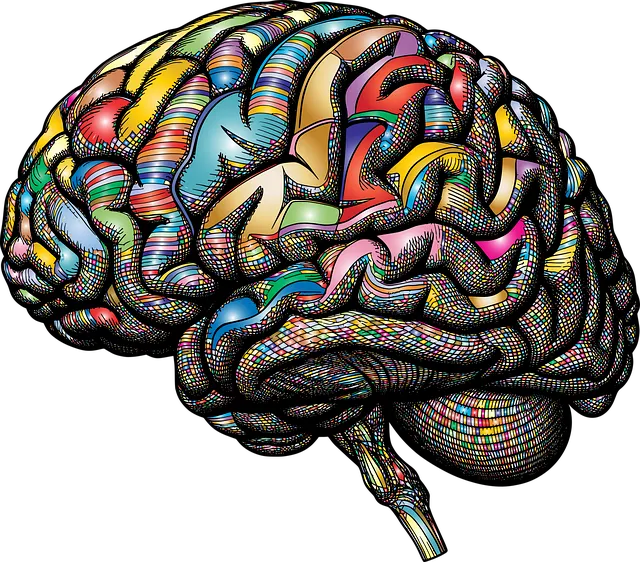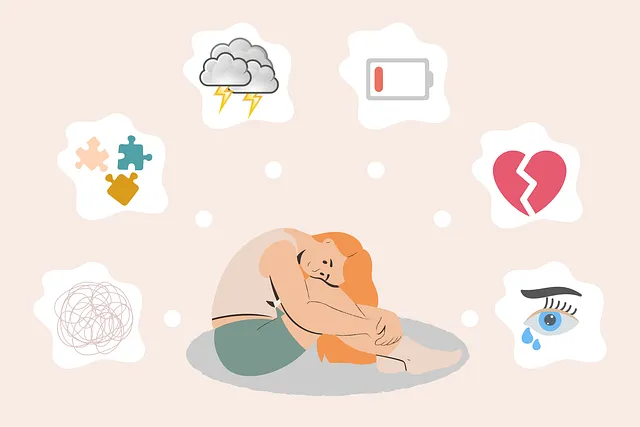According to Parker Kaiser Permanente psychiatry reviews, social skills training is a crucial holistic approach in mental health care. It focuses on improving communication, relationship building, and stress management to combat social impairments linked to depression, anxiety, and schizophrenia. Structured programs like Community Outreach initiatives teach coping skills and enhance self-confidence in diverse social settings, empowering patients to form meaningful connections and improve their overall well-being. These reviews also highlight the benefits for mental health professionals, preventing burnout and improving job satisfaction.
Social skills training is a powerful tool for managing mental health conditions. This approach focuses on enhancing interpersonal interactions, communication, and emotional regulation, addressing core challenges often associated with disorders like anxiety and depression.
This article explores the critical connection between social skills and mental wellness, delving into the role of psychiatry in facilitating this training. We present effective strategies and highlight key findings from Parker Kaiser Permanente psychiatry reviews, offering valuable insights for improved patient outcomes.
- Understanding the Link Between Social Skills and Mental Health
- The Role of Psychiatry in Social Skills Training
- Effective Strategies for Social Skills Development
- Parker Kaiser Permanente Psychiatry Reviews: Insights and Implications
Understanding the Link Between Social Skills and Mental Health

Social skills training is a crucial aspect of mental health care, as there’s a significant link between an individual’s ability to connect and interact with others and their overall well-being. Studies, including those reviewed by Parker Kaiser Permanente psychiatry experts, highlight that poor social skills can exacerbate existing mental health conditions such as depression, anxiety, and schizophrenia. These conditions often manifest or worsen in social settings due to feelings of isolation, loneliness, and a lack of understanding from peers.
By implementing effective stress reduction methods and promoting mind over matter principles, social skills training aims to empower individuals with the tools to navigate relationships, communicate effectively, and build a support network. This holistic approach to mental health awareness recognizes that addressing social impairments can significantly contribute to recovery and improved quality of life.
The Role of Psychiatry in Social Skills Training

Social skills training is an integral part of comprehensive mental health care, and psychiatry plays a pivotal role in this process. At institutions like Parker Kaiser Permanente, as showcased in their psychiatry reviews, experts emphasize the importance of addressing social functioning alongside symptom management. Mental health conditions often impact an individual’s ability to interact with others, leading to social isolation and further exacerbating symptoms. Thus, training focuses on developing coping skills that enable individuals to navigate social situations more effectively.
The goal is not only to teach specific social behaviors but also to foster inner strength and confidence. Through structured programs, including Community Outreach initiatives, patients learn to manage their conditions in diverse settings. This approach empowers them to engage in meaningful relationships, improve communication, and enhance overall well-being. By integrating these training sessions into treatment plans, psychiatry professionals contribute significantly to the holistic development of individuals seeking support for their mental health.
Effective Strategies for Social Skills Development

Social Skills Training plays a pivotal role in managing mental health conditions, as it equips individuals with tools to navigate social interactions successfully. For those seeking support, Parker Kaiser Permanente psychiatry reviews highlight the growing importance of such training as a holistic approach to treatment. One effective strategy is Role-Playing Exercises, where patients simulate real-life scenarios under professional guidance, allowing them to practice responses and gain confidence in various social situations.
Additionally, Encouraging Open Dialogue within therapeutic settings fosters a safe space for individuals to share their experiences and learn from one another. This promotes Cultural Sensitivity in Mental Healthcare Practice, ensuring that diverse perspectives are considered. Communication Strategies, such as active listening and empathy training, are also integral parts of this process, helping patients build stronger connections and improve overall social functioning while preventing depressive episodes through enhanced interpersonal interactions.
Parker Kaiser Permanente Psychiatry Reviews: Insights and Implications

The Parker Kaiser Permanente Psychiatry Reviews offer valuable insights into effective social skills training for mental health conditions. These reviews highlight the significance of teaching patients essential communication and interpersonal abilities to manage their conditions. By integrating social skills training into treatment plans, healthcare providers can empower individuals to navigate social interactions with confidence, reducing anxiety and improving overall well-being.
Moreover, the studies underscore the potential for these programs in mitigating burnout among mental health professionals. As burnout prevention becomes a growing concern within the healthcare industry, evidence-based strategies like social skills training can enhance resilience and job satisfaction. The risk assessment for mental health professionals is crucial, and these reviews contribute to developing effective burnout prevention strategies for healthcare providers, ensuring they can offer compassionate and sustainable care.
Social skills training is a valuable tool for improving mental health outcomes, as evidenced by the insights from the Parker Kaiser Permanente psychiatry reviews. By addressing social skill deficits, individuals with mental health conditions can enhance their overall well-being and navigate social environments more effectively. This approach, supported by research in psychiatry, offers a promising direction for comprehensive treatment plans, emphasizing the importance of integrating social skills development into mental health care.






